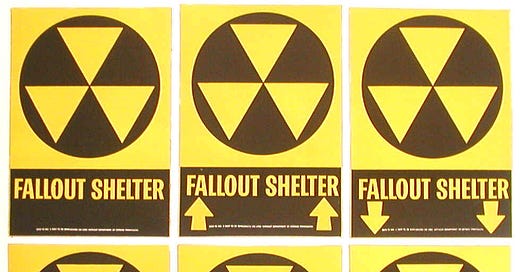The Necessity of Civil Defense
What if the soot raining down on Brooklyn from the World Trade Center had been radioactive?
by Rod D. Martin
January 16, 2002
September 11th brought into sharp focus the defenselessness of America. And despite our astonishingly-effective offensive campaign in Afghanistan, here at home we remain as we were.
The United States maintains armed forces in over a hundred countries around the world; nevertheless, on the morning the World Trade Center was destroyed, there was not one air defense battery to shoot down the hijacked airliners, not one “Star Wars” system to destroy the atomic bombs which might have come next; and not one American town had the ability to shelter its people against nuclear, biological or chemical attack.
This unconscionable vulnerability remains, and the threats are only growing. Even if no terrorist groups presently possess ballistic missiles, states do arm terrorists, and practice terrorism themselves. And the number of wicked, unstable, and well-armed states grows by the day.
Much of this can and should be addressed by deploying air and missile defenses, som…




